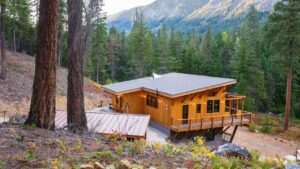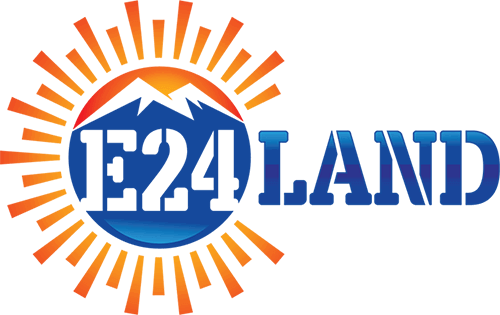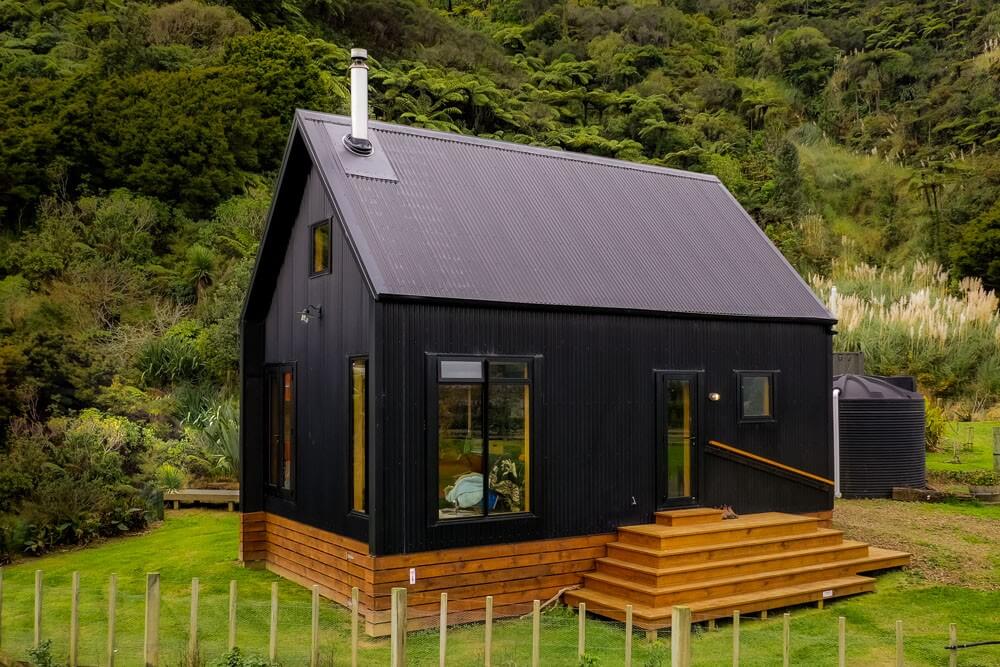Off-Grid Living Has Both Pros and Cons

The concept of and discussions around off-grid living has increased over the years, especially since the pandemic began. Have you ever thought it would be nice to escape to the middle of nowhere and live your life in complete peace? You’re not alone. According to Big Rentz, over 250,000 people now live off-grid in the United States vs.180,000 in 2013. Some estimate that 12% of all Americans will be off-grid living by 2035.
Switching from on-grid to off has both pros and cons. So let’s dig a little deeper into off-grid living and find out if it is a good fit for you and your family.
With So Many Talking About Off-Grid Living, Why Don’t More Do It?
The upfront costs can scare some off. An off-grid residence may cost close to a decent-sized housing budget on the grid. The difference lies in the long-term savings achieved with off-grid living. Proper preparation, knowledge, and technical abilities are required to make this a smooth transition. It involves a lot of research as well which can feel like too much for some.
We will talk about what it means to truly live off-grid and both benefits and challenges.
What Does It Mean to Live Off-Grid?
By definition, living off-grid means you do not rely on any assistance from public utilities for electricity, water, sewer, natural gas, and heat. Your house does not connect to your city’s network in any way.
You will need to produce your electricity on-site and have it powered by renewable energy resources, like wind, solar, and geothermal. Generators and fuel reserves are also a necessity. An extreme off-grid option would be to go without electricity altogether. You need a reliable water source separate from the city supply, such as a nearby lake, stream, well, or rainwater with filtration as required.
Moreover, most individuals must go to great lengths to produce and prepare their food to live “off-grid.” Above all, it takes dedication.
So, are you prepared to disconnect entirely? It is essential to know the pros and cons of living off-grid before making this decision.
Pros of Living Off-Grid
Eco-friendly Living
The way we carry out our daily activities has become more detrimental than beneficial to the ecosystem. Demand for non-renewable energy also increases greenhouse gas emissions. In turn, these gases endanger the earth’s survival. By avoiding conventional energy sources, you are helping the environment.
Using renewable energy sources like wind and solar minimizes the carbon footprint in the atmosphere.
Budget-Friendly Living
It may appear to be costly at first to build a self-sustaining house powered by solar energy, generators, and batteries and then to tap into a natural water source, but it can lead to big money savings in the long term. There are estimates of savings in the hundreds and thousands of dollars in water and power expenses over time. It is even possible to collect rainwater for your water source ( Laws in all 50 States ), which is extremely economical. Land prices are also typically less expensive in rural areas giving you plenty of space for setting up a small farm which saves money with growing your own food.
According to offgridenergy.com, “an off-grid solar system can run your entire home on clean energy while also making better use of your power. Many grid-connected households are wasteful with electricity, but a standalone system encourages you to place greater value on electricity – and make the best use of your own generation”.
Makes One Self-Sufficient
One benefit of avoiding the social grid is that it fosters self-sufficiency. Imagine not having to depend on the farmers market for your vegetables and salads. This technique improves your capacity to generate energy from natural resources.
The Simple Life
Living away from the city allows you to experience nature and a simpler way of life. You can sit outside and enjoy the cool breeze while taking in the surroundings for entertainment. Nature becomes your friend, and you gain from it. You may grow your food organically and simply in nature and reduce the number of toxic preservatives consumed.
Cons of Living Off-Grid
First Time Costs
An entire off-grid residence with all the city conveniences may appear to cost a small fortune. Between a solar system for power and the construction of a potable water system suitable for a comfortable existence is a big enough con to keep some away. Groundwater well and septic system costs will also set you back in the beginning.
Periodic Loneliness
If the company of others feeds your soul, then you need to consider how off-grid living may feel lonely at times. You need to prepare to be alone for many days at a time and not even talk to others over the phone should the area be too remote for cell service. Here is a good resource on how to cope and prepare with potential loneliness that may come with the territory.
Inconvenience
Off-grid living can be quite a substantial adjustment to the difference in lifestyle when compared to on-grid. Expect to work extremely hard to provide and plan well without living near your local supply store or grocer to run to in pinch. You also have restricted access to vital services like car mechanics and home repair. Being a jack of all trades is beneficial for off-grid living.
What’s Next?
Fortunately, it is legal to live off-grid in every state within the United States, assuming it isn’t for critical infrastructure like a hospital. However, off-grid regulations vary from state to state, so that may restrict your ability to live off-grid in certain areas authentically. For this reason, it’s a good idea to familiarize yourself with the state’s laws governing off-grid living. Keep an eye out for any new restrictions the local government may issue. You can read more about how states rank here with off-grid living.
Now, it’s time to weigh the pros and cons and figure out if it is a suitable option for you.
If you decide off-grid living is a good fit for you, check out our land listings so you can get your off-grid project started! We have plenty of acreage for you!

